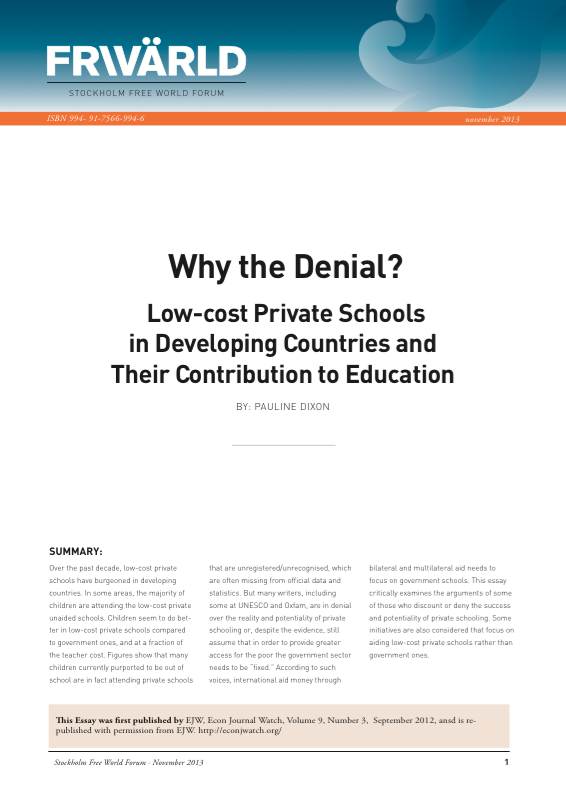In many developing countries, the majority of the poorest children go to low-cost private schools, which do not receive any public funding or aid money. The students in these schools often perform better than the children in the public schools, for a fraction of the fees.
In her report ”Why the Denial? Low-Cost Private Schools in Developing Countries and Their Contributions to Education”, the British education and development researcher Pauline Dixon presents how private schools offer high-quality education when public schools are failing.
She also tells how international organizations such as UNESCO, which handles Swedish aid, deny this reality and still live with the perception that only public schools can provide proper schooling for the poorest of the poor.
The report also brings up that the aid industry could, instead of solely funding govermental schools, deploy a system of vouchers.
Pauline Dixon is the research manager for the EG West Centre at Newcastle University and is, together with her colleague James Tooley, world renowned for her work on the role of private schools in developing countries. Dixon has engaged in this research subject for more than ten years and done comprehensive field studies in India and several African countries. In 2013 her book International Aid And Private Schools For The Poor – Smiles, Miracles and Markets was published.
The report was first published by Econ Journal Watch in September 2012.
